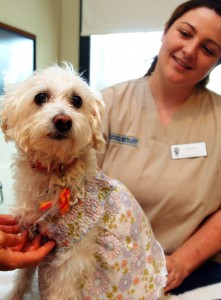-
Recent Posts
Archives
- October 2022
- August 2022
- May 2022
- March 2022
- January 2022
- December 2021
- September 2021
- July 2021
- June 2021
- May 2021
- April 2021
- February 2021
- January 2021
- November 2020
- October 2020
- September 2020
- June 2020
- April 2020
- March 2020
- February 2020
- January 2020
- December 2019
- November 2019
- October 2019
- September 2019
- June 2019
- March 2019
- February 2019
- January 2019
- December 2018
- November 2018
- October 2018
- August 2018
- July 2018
- June 2018
- May 2018
- April 2018
- March 2018
- February 2018
- January 2018
- December 2017
- November 2017
- October 2017
- September 2017
- August 2017
- July 2017
- June 2017
- May 2017
- April 2017
- March 2017
- February 2017
- January 2017
- December 2016
- November 2016
- August 2016
- July 2016
- June 2016
- May 2016
- April 2016
- March 2016
- February 2016
- January 2016
- December 2015
- November 2015
- October 2015
- September 2015
- August 2015
- July 2015
- June 2015
- May 2015
- April 2015
- March 2015
- December 2014
- June 2014
- May 2014
- April 2014
- November 2013
- September 2013
- August 2013
- July 2013
- June 2013
- May 2013
- March 2013
- January 2013
- November 2012
- October 2012
- July 2012
- December 2011
- November 2011
- October 2011
- September 2011
- August 2011
- July 2011
- June 2011
- May 2011
- April 2011
- March 2011
- February 2011
- January 2011
- December 2010
- November 2010
Categories
Ask our 24 HR Emergency Vets and Specialists
Welcome to our Ask the NorthStar VETS Specialists Segment.
Here you will find Q & A’s from everyday Pet Owners like yourself and have the opportunity to virtually “get to know” our veterinary specialists!
*You can visit us on Facebook to leave us your question, and we’ll be sure to give you the best answer possible.
Q: My boston terrier LOVES to eat sticks and I am afraid she will get sick or injured from them. My backyard is woods. I have tried every chew toy out there. She is an aggressive chewer and has chewed thru all her toys…..What can I do?
Dr. Hammer’s Response: I don’t know what different chew toys you have tried but hopefully you have not tried a Kong yet. Get a heavy duty (marketed as the extreme Kong) and fill with a treat such as kibble or peanut butter. This will help keep her occupied. Also consider trying some of the toys where the pet has to work to get the kibble out. Use it supervised – this may help redirect some of her energy. Lastly, chewing sticks can be dangerous as they can get stuck in the mouth or esophagus. If you are unable to supervise her or cannot prevent her from chewing sticks while outside, try a basket muzzle to prevent her from chewing things or ingesting things.
Dr. Levin’s Response: It may be a good idea to consider a cage muzzle to prevent an emergent situation.
Amy Jacobsen, CPDT-KA Professional Pet Trainer’s Response:
This is a tough one. My best suggestions would be as follows:
1. For toys: I love stuffed kongs(you can put kibble or treats in them, a little peanut butter at the top, and then freeze them), marrow bones(from the pet store, NOT the grocery store), edible nylabones, and dura-chew nylabones. If she doesn’t show an interest in these hard plastic chew toys, try putting a little peanut butter on them to encourage her.
2. Teaching her a command such as ‘leave it’. Obviously you cannot catch her every time she eats a stick, but this training exercise can help to control her immediate impulses to eat sticks, and anything else she is not supposed to. You may enroll her in a group or private basic obedience class to learn this technique, and many other helpful commands, as well as an outlet for a Boston’s never ending energy! 

3. Supervision while in the yard. Granted, it is impossible to watch her all of the time, but if you and your dog learn the ‘leave it’ command, and practice accordingly, you can apply the command while she is sniffing for her favorite forbidden treat.
Q: What kind of food do they feed their animals and why?
Dr. Hammer’s Response: I feed Hill’s Science Diet. It is a high quality food. The company promotes humane research into the nutritional support of health problems. It is delivered to my hospital.
Dr. Kim’s Response: I feed my pets Science Diet and Purina foods. These 2 companies have done the most research than any other pet food brands. I feel confident that what they say on the label is what is on the bag. I would not consider giving any other foods for my own pets and these are the foods I recommend to all my patients.
Dr. Stobie’s Response: Iams lamb and rice. Libby has a
sensitive stomach and these novel protein diets are good for dogs with food allergies. Iams is a good company with lots of research behind their diets, but other great food companies are Hills, Royal Canin, Purina, and Eukanuba.
Q: Why don’t you have a clinic on doing dogs nails…cutting vs filing..my question is why does my dog get a lump that never goes away everytime she gets a shot?
Dr. Kim’s Response: I have no preference between cutting or filing, though a lot more people are moving towards filing because they find it easier. Most vaccines jobs are to make the immune system more active. Therefore it is not uncommon for the vaccine or shot to cause a lump at the injection site which can last as long as a month. If the lump lasts longer then a month, I recommend that you have it evaluated and monitored by your regular veterinarian. If the lump grows in 1 month, is greater than 2 cm or lasts longer than 3 months then it should be biopsied.
Dr. Stobie’s Response: We are specialists and don’t do nail trims, that is something to ask their general vet to do. Dog’s get a lump at the vaccine site sometimes because it is stimulating the immune system – that’s what vaccines do- and this reaction is similar to a hive, immune reaction.
Q: I have an elderly in the earlier stages of kidney failure, and her appetite is very poor. I give her Cyproheptadine as often as twice a day, and also Pepcid AC once a day. Even so, she’s lost a lot of weight because she still has very little desire to eat. What else can I try in order to increase her desire to eat? I have the most success with feeding her Royal Canin Renal LP (canned). She wouldn’t eat Hill’s k/d at all, nor would she eat the Purina renal food.
Dr. Hammer’s Response: Warming the food will increase its aroma and may help your pet become interested in eating again. Please discuss further dietary changes and other supportive options with your regular veterinarian.
Q: My dog is suspected of having food allergies. He is on a restricted diet. I have heard such wonderful things about raw diets. Would this be a good diet to try?
Dr. Hammer’s Response: I do not recommend raw diets for many reasons. The biggest reason I don’t recommend raw diets is for health concerns. Raw meats have higher levels of disease-causing bacteria such as Salmonella. This puts not only your dog at risk of developing gastrointestinal problems but is also concern for other members of the family who may handle the food or the bowl the food is in – especially children or immunocompromised adults. It requires meticulous handling to prevent infections. Most diets that are used for food allergies are recommended because they contain a novel protein (venison, rabbit). By feeding a novel protein diet, you are not giving the proteins that are found in normal dog foods (chicken, soy, beef) and thus the pet cannot have an allergic reaction. Most veterinarians do not recommend raw diets in general though there are some people who swear by their benefits. Its a controversial issue!
Dr. Groman’s Response: Raw diets are advocated by many dog and cat owners, and some veterinarians, as well. However, raw diets (by definition) require meat protein (lamb, poultry, beef, others) or fish. While processed fillers, colorings, etc may be responsible for allergies in some cases, the protein is/are the most likely “offender” in dogs and thereby food allergies are not generally a good indication for introducing a raw food diet. Occasionally we are asked if it is the inherent nutritional deficiencies in commercial dog foods that are responsible for disabling dog’s immune systems (ie, dog allergies could be “fixed” by feeding home made raw diet) but this is not proven. Before making such a change for your pet, please verify that your dogs’ allergic condition is food related (not environmental) and that he/she does not respond to current dietary management strategies, as should be discussed with your dogs’ primary veterinarian.
Q: Have you heard of any long term effects of Atopica? My yellow lab is 7 and has lots of allergies. She has been on it for s few years. Changed her diet. The med is the only thing that gives her break from the scratching and licking. Also 2 years ago she was diagnosed with TVD.
Dr. Hammer’s Response: As far as we know, there are no long term effects of Atopica. In humans on immunosuppressive therapy (usually to prevent organ transplant rejection) there is an increased incidence in certain types of tumors but this has not been reported in dogs. Dogs who are on long-term Atopica may be at increased risk of developing infections but this is uncommon. The only side effect we tend to see from Atopica is GI upset in a small number of dogs.
Dr. Groman’s Response: Cycosporine (Atopica) has helped many dogs with allergic/immune-mediated diseases. Short term side effects are seen occasionally, but long term side effects are very rare at therapeutic doses (Drug has much wider safety margin than in people) Drug “levels” can be measured on blood samples, and this is occasionally recommended if there if any question about cyclosporine in a given patient BUT not recommended for all or even most dogs that are “doing well”. If she indeed is doing well, and you have discussed this concern and other causes of itching/scratching with her primary veterinarian, I would not recommend stopping the one thing that “gives her a break” from this discomfort. TVD is most commonly seen in Labs, and if she has no signs of heart failure, I would not stop cyclosporine for this heart malformation — but the cardiologist who examined her should be aware of her current medications and also give the “OK” on this, as well.
Q: How do you cope with the celebration of life when God needs his animals back?
Gina’s Response: This is a tough question as we all have different opinions of God and Religion in general. Death is a part of life that is inevitable. In the end, we all leave this earth. I am a firm believer, however, that all animals have a mission or a purpose in thier lives. Once we discover this mission, often after our pet passes, we can find peace in thier parting and celebrate their life as well as the love they gave us. If I may share a story with you that may help explain my way of thinking…
My dog Jake passed away in July after a long battle with cancer. He was special as all pets are. His purpose in life, I believe, was to change my father?s outlook on life. While my Dad has an enourmous heart for people, he did not fully understand the human – animal bond. We only had Jake for 7 years, but Dad went from a person that saw animals as a money pit, an inconvenience and distraction, to a man that loved his dog with every ounce of his heart. Jake made Dad a better and stronger person, opened him up to a new type of love, one he continues to show with all animals today. Without Jake, Dad would never have felt the incredible love and companionship that a pet’s soul can share. I miss Jake still and so does my family, but we can celebrate his life and the difference he has made for all of us.
I run a monthly support group at Northstar every 3rd Sunday of the month. One thing that we look at is our pet’s purpose and mission while they were on earth in the physical form. Its amazing what we have discovered. Anyone can join, if you are interested please feel free to contact me.
This entry was posted in Pets, Veterinary Medicine and tagged 24 hour emergency, 24 hour vet emergency, 24 hour vet hospital, allentown, animal emergency, avian, brick, cherry hill, clarksburg, dog emergency, exotics, freehold, hamilton, howell, jackson, lakewood, Mercer County, millstone, Monmouth County, New Jersey, New Jersey Dog, nj, NorthStar VETS, Ocean County, pet emergency, princeton, robbinsville, sick dog, toms river. Bookmark the permalink.












Leave a Reply